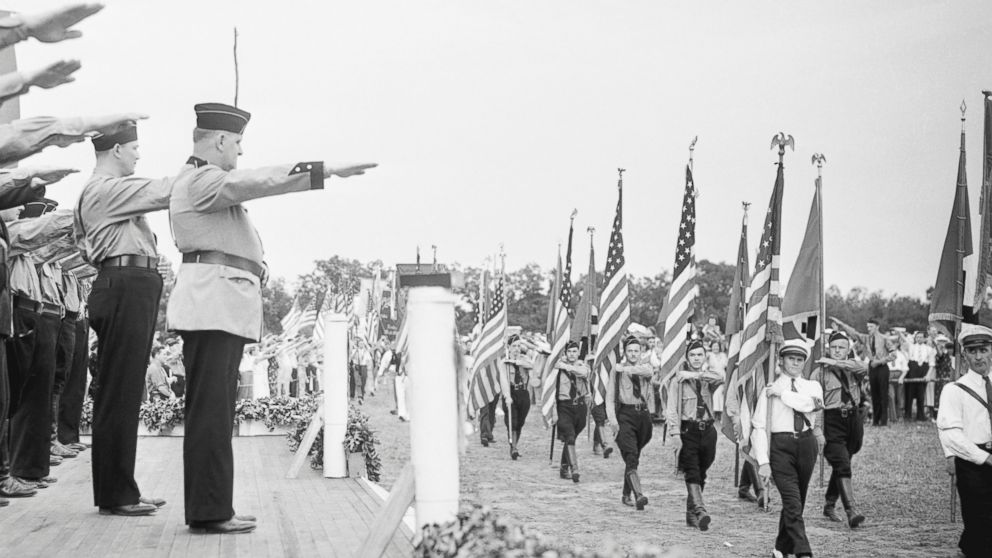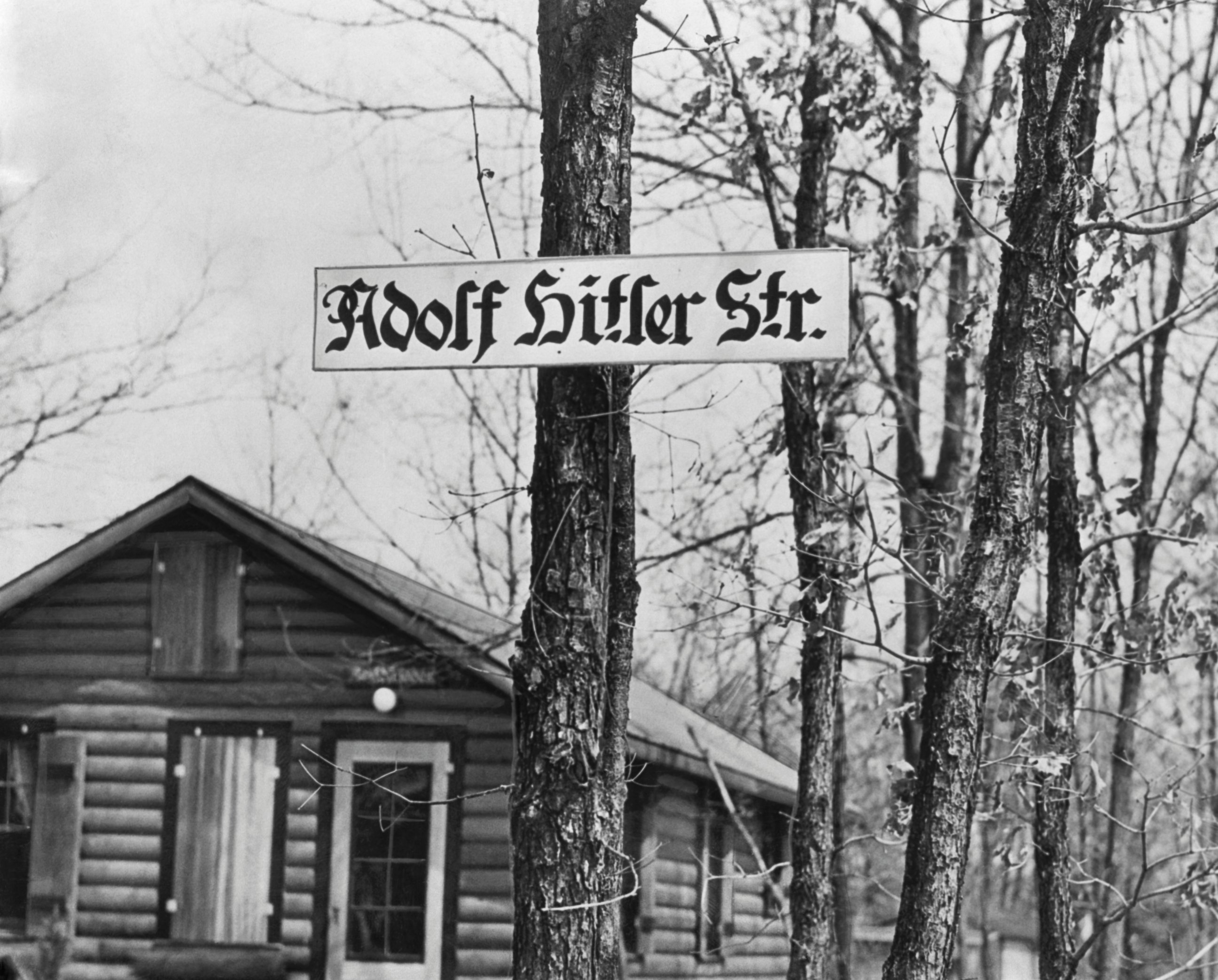Long Island Neighborhood's Nazi History and Alleged Pro-German Discrimination Cited In Lawsuit
The "restrictive" bylaws in a Long Island town are at issue in a lawsuit.

— -- A private neighborhood on Long Island that used to pride itself on its ties to the Nazis, and which still largely restricts non-Germans from living there, is being sued to change its bylaws.
A family who has been trying to sell its home in Siegfried Park for the past six years in accordance with the German-American Settlement League's strict bylaws, which limit the advertising of properties for sale to its board's meeting minutes, is suing the group to have those rules changed.
The German-American Settlement League, which owns property in Yaphank, New York, was founded as a Nazi summer camp. Streets there were named after Adolf Hitler and Joseph Goebbels, according to the lawsuit.
In the late 1930s, "German-American families traveled to Siegfried Park, then known as Camp Siegfried, to attend rallies and marches in support of Nazism," the federal lawsuit, filed against the German American Settlement League (GASL) on Monday, states. "At the camp, Nazi flags were hung, pictures of Hitler were displayed, and a garden was planted in the shape of a swastika."
The group's connections to the Nazi regime lessened when it stopped receiving funding from the German American Bund, an American Nazi organization, in 1940 but some symbols remained for decades, according to the suit. According to the lawsuit, the "GASL still displays one of the Hitler Youth emblems, modified with a shovel across it, on top of a flagpole flying the German flag in its clubhouse at Siegfried Park."

The neighborhood's racial and national demographics, however, have not changed, the lawsuit contends, since all residents must be approved by the GASL's board in order to rent or own property in Siegfried Park.
Property owners must be members of the GASL, which is "primarily open to all persons over 21 years of age or older, of German extraction and of good character and reputation," the bylaws, included in the lawsuit say.
Membership may also be open to "other national elements," the bylaws say. But the suit says these criteria are discriminatory because "all homeowners in Siegfried Park currently are and always have been white," the suit says.
The lawsuit raising questions about the group's bylaws was filed by Phillip Kneer and his wife Patricia Flynn Kneer. The couple, who are both of German descent, bought their home in 1999 when they heard that a friend's mother had died and they were selling the woman's home.
At that time, the board approved the sale of the property to the Kneers after, the lawsuit states, GASL members "were impressed" that Mrs. Flynn Kneer's mother was from Berlin, the lawsuit states.
The Kneers decided that they wanted to sell the two-bedroom, one bathroom home after they had two children. The lawsuit states that the problem they had in advertising the home stemmed from the neighborhood's bylaws, which prohibited them from "placing a for-sale sign in their yard or on their house, or advertising their home for sale in any publication, such as a multiple listing service."
Phil Kneer asked the board president if it would consider changing the rules, but, according to the lawsuit, the president "told Mr. Kneer that these rules were not going to be changed because the members wanted to keep it the way it is."
The board president, identified by The New York Times as Robert Kessler, did not immediately respond to ABC News' calls for comment. August Stahl, who is a former board president and Kessler's brother-in-law, told ABC News he could not comment until securing an attorney to represent the group in the suit.
After six years of trying to sell their home in keeping with the rules, the Kneers had no success. So they reached out to the Long Island Housing Services Inc., a fair housing advocacy group that is now listed as a co-plaintiff in the suit.
Attorneys Diane Houk and Andrew Wilson, who are representing the Kneers and the LIHS, explained to ABC that while condo and co-op boards regularly approve applications from prospective residents, the difference in this case is that the GASL's bylaws specifically state their bias in favor of those with German ties.
"As housing discrimination cases go, it's a strong one since there is such a clear preference in the bylaws to prioritize individuals of German descent," Wilson told ABC.
The plaintiffs are seeking a jury trial and "nominal compensatory damages," Houk explained.
"The lawsuit is not about the price of the home. The lawsuit is about changing the bylaws," Houk told ABC News. "They want to make the community available to people regardless of their national origin."




